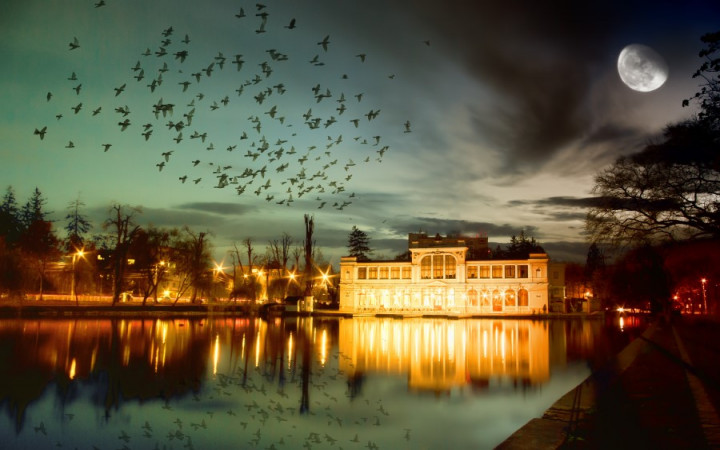Today’s Wonder of the Day was inspired by Judy from South Salem, NY. Judy Wonders, “Where do birds go at night? (If I shook a tree, would they wake up?) ” Thanks for WONDERing with us, Judy!
Do you love to watch birds? If you've ever been lucky enough to see the majestic beauty of a bald eagle in flight, you know how it can stir the soul to watch it float through the air.
Of course, you can take just as much enjoyment from watching cardinals and bluebirds hanging around a backyard bird feeder. Their graceful, colorful shapes can make even the cloudiest day brighter.
If you spend much time watching birds, you quickly learn the best times to find them flitting about. Backyard bird feeders, for example, will usually see the most traffic early in the morning and late in the afternoon.
Once the Sun goes down, you probably won't see many birds at all. Unless they're nocturnal, like owls, most birds seem to disappear with the last rays of sunlight. But where do they all go?
Most birds are diurnal, which means they're most active during the day, especially early in the morning and late in the afternoon. Like humans who are active during the day, most birds spend their nighttime hours with one goal in mind: sleep.
For birds, sleeping is an activity that's both necessary and dangerous. When they're asleep, birds are vulnerable to attack from various predators. In order to get the quality rest that they need, birds have to find places to sleep that will afford them some protection from their enemies.
For many birds, this means sticking close to the areas where they hang out during the day. Instead of sitting out in the open on the ground or a low branch, birds will often choose to move to higher branches and stay close to the trunk of the tree where there's more warmth.
Birds also love to find holes, cavities, and other niches in trees to hide in. If a hole is big enough, several birds may squeeze in together to benefit from the warmth of multiple bodies. Bird houses built by humans can also provide a safe haven at night. Other birds may choose to hide themselves amongst the thick, dense branches of evergreen trees.
Water birds, including herons, flamingos, ducks, and geese, will usually stay in the water at night. Whether they're standing or floating while they sleep, the water provides them the safety they desire. Any predator approaching will create waves that will alert sleeping birds via sound and vibrations.
Other birds, such as blackbirds, may roost together in large flocks at night. They find safety in numbers, and they often take turns keeping watch through the night, watching and listening for predators.
From time to time, you may hear or see birds at night, and they're not always nocturnal birds out foraging for dinner. Sometimes diurnal birds use nighttime hours, which are quieter and calmer, to engage in other activities, such as migrating and searching for mates.





